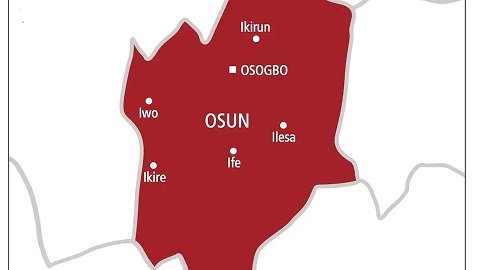[ad_1]
Both must be corrected-the one as far as possible, compatible with optimal economic efficiency and sociological considerations; and the other as a matter of absolute necessity. With these corrections, and with the increase in productivity, throughout the country, which our objectives envisage, it should be possible to increase the length of our road construction from an average of 2,000 miles per annum (during the 10 years from 1956 to 1966) to an average of 7,550 miles per annum over the next 15 years.
Secondly, the opinion has been seriously expressed in certain quarters that from now on the emphasis in Nigeria should be on road construction rather than on railways. It is said in support that this is the present trend in developed countries and that this trend has been necessitated by the unprofitability of the railways generally, in the face of fierce and superior competition from road transport. I must confess that I cannot speak with authority on the alleged trend. I do know, however, that in Britain the railways are not profitable, and that in general, both theoretically and practically, the railways are no match for road transport, from the point of view of competition.
But where certain types of traffic are concerned, where long distances are involved as in Nigeria, where speed is of the essence of movement of goods from such distances, and when account is taken of the long-term costs of construction and maintenance, road transport is no match at all for the railways. Water transport will be a match only where speed is not of the essence, and cheapness in cost is expected to offset the inevitable loss in time.
It is also true that, with an average speed of 20 miles an hour, our railways are incredibly slow and clumsy. But I have been authoritatively informed that, by relaying our rails and realigning our tracks, we can achieve an average speed of 50 miles an hour. The cost of such relaying and realignment will be £34,000 per mile; and I strongly advocate that we undertake this exercise in our next development plan, on the line between Lagos and Kano. This undertaking will cost us about £30 million. But its immediate effect, on completion, would, in general, be a tremendous boosting of our economy and, in particular, a big rise in the standard of living of Nigerians who live north of the Niger.
It is necessary to point out that, in order to attain a speed of say 80 or more miles per hour on our railways, we would have to scrap the sure that just enough, and no more than just enough, was paid to these Nigerian workers, to enable them to maintain a measure of physical and mental fitness required of people whose role was to obey orders, push the pen, interpret the English language into the vernacular, draw water, hew stone, and, withal, look upon the white man as a god!
As we have shown, what goes for Government services goes for the business houses as well. One important difference should, however, be noted. Because their sole object was to make as big a profit as possible, European merchants and businessmen were always more inclined and more ready to encourage Nigerian talent, whenever they found one, to exercise a reasonable degree of initiative and independent judgment in any assignment given to him, and to reward him accordingly. By contrast, however, under the colonial administration, unquestioning obedience, cringing, and fawning, on the part of Nigerian civil servants, often counted more towards personal advancement than efficiency and initiative.
The result of all these is that, when we took over from the British, we inherited, at the senior service level both in government and in business, a salary structure strictly related to the economic and social circumstances which obtained in Britain and, at the junior and daily paid worker’s level, salary and wage structures which were strictly related to the appalling conditions which obtained in Nigeria at a time when our community was just emerging from primitive barter economy and slavery, and from the ravages of inter-tribal wars.
The Nigerian merchants and middlemen, who were among the most educated and most enlightened few in our Society, lost no time in exploiting the ignorance of their people as well as the complete lack of effective communications in all parts of the country. Quite legitimately but unpatriotically and unashamedly, they constantly and deliberately manipulated and rigged the market in export farm products and imported goods, and considerably enriched themselves at the expense of the farming classes, petty traders, and low-income workers. In spite of the passage of time, these nefarious methods of old are still being practised by Nigerian merchants and middlemen on a grander though more sophisticated scale, with the consequent further widening of the gap between the rich and the poor in our community.
ALSO READ FROM NIGERIAN TRIBUNE
It is our bounden duty, for the sake of new Nigeria, to make a clean break with all these ugly, evil, degrading, and dangerous legacies. And it is to this end that I am advocating the rationalization of the salaries and remunerations paid to or received by different classes of employed and self-employed persons, with a view to drastically reducing the existing gap between the higher and lower income groups.
In doing this exercise, five classes of people will have to be considered:
(i) those employed in the services of the government and its agencies;
(ii) those employed in the private sector;
(iii) • self-employed persons;
(iv) landlords, and
(v) rentiers.
In regard to the first and second classes, the approach should be to appoint a team of experts to do a scientific classification and evaluation of employments, and recommend new salary and wage structures which will be in keeping with the socialist system that we want to see established in the people’s republic of Nigeria. In this connection, faithful regard will have to be paid to well-known job evaluation factors such as (1) educational qualifications, (2) period of training, (3) mental aptitude, (4) physical fitness, (5) degree of responsibility required, and (6) conditions of work, all of which vary from occupation to occupation, from vocation to vocation, and from profession to profession.
CONTINUES NEXT WEEK
[ad_2]








